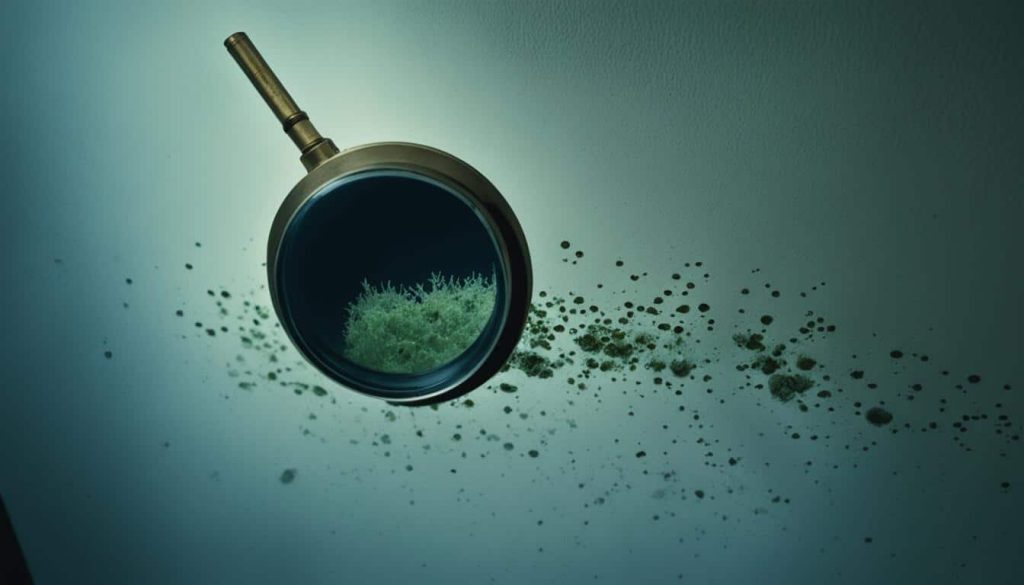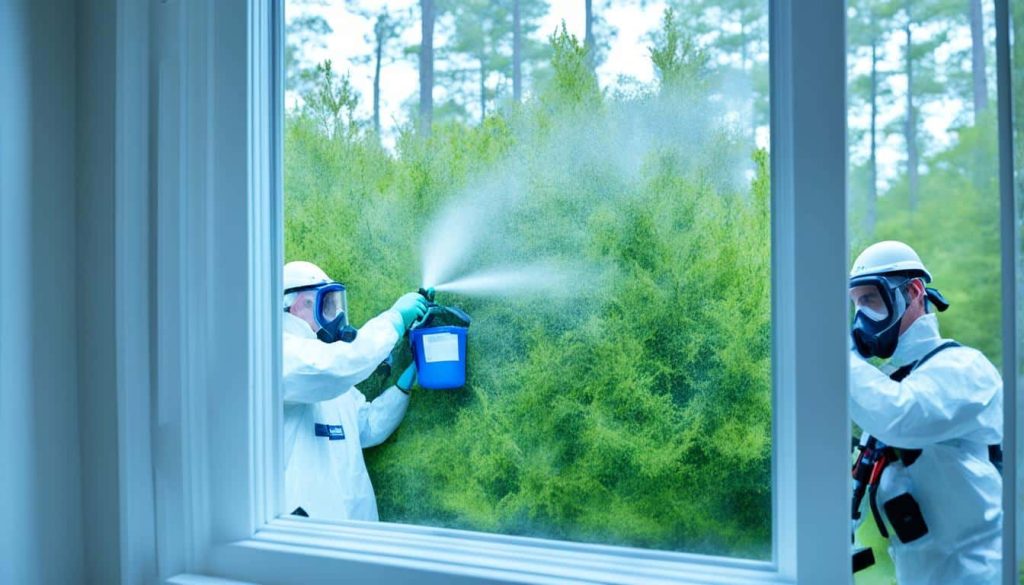Hello, Douglas Whitehead from Array of Solutions here. Today, I’m diving into a topic that’s gaining increasing attention in the media and real estate transactions alike: What Purpose Does Mold Serve?. With growing concerns about air quality and its impact on health, understanding mold’s role and purpose has never been more crucial. My goal is to clarify what mold is, its natural function, and why it becomes problematic when found in excess within your home.
Array of Solutions, a trusted name in mold removal in Greenville South Carolina since 2007, stands ready to tackle your mold woes. With our expert mold inspection Greenville services and EPA-Registered credentials, we’re equipped to detect, remove, and prevent mold growth in your home or business.
Table of Contents
The Nature of Mold
Mold is a ubiquitous presence in our environment. It thrives in diverse conditions and is part of the natural decomposition process. However, its benefits and drawbacks are often misunderstood. The common saying “An ounce of prevention is worth a pound of cure” aptly captures the essence of managing mold. Understanding mold’s role helps us appreciate why it’s vital to address mold issues before they escalate.

What Purpose Does Mold Serve?
At its core, mold plays a critical role in the ecosystem. Its primary function is to break down organic material, contributing to the decomposition process. This process is essential for nutrient recycling in nature. Mold helps decompose dead plants, trees, and animal matter, facilitating the return of nutrients to the soil. This breakdown ensures that organic material does not accumulate indefinitely, thus maintaining ecological balance.
Here’s a closer look at why mold is beneficial in nature:
- Decomposition: Mold is a natural decomposer. It breaks down dead organic material, which would otherwise clutter the environment. This decomposition process is crucial for the health of ecosystems, allowing for the recycling of nutrients back into the soil.
- Nutrient Cycling: By decomposing organic matter, mold contributes to the nutrient cycle. The nutrients released into the soil support new plant growth, maintaining soil health and productivity.
- Ecosystem Balance: Mold plays a role in controlling the accumulation of organic material. Without mold, dead plants and animals would not decompose efficiently, leading to an imbalance in ecosystems.
Mold in Your Home: When It Becomes a Problem
While mold serves a vital purpose in nature, its presence indoors can be problematic. Mold thrives in environments with excess moisture, and its growth in homes can lead to various issues:
- Health Concerns: Mold exposure can cause a range of health problems, particularly for individuals with respiratory conditions, allergies, or weakened immune systems. Symptoms may include coughing, sneezing, skin irritation, and in severe cases, mold-related illnesses.
- Structural Damage: Excessive mold growth can damage building materials, leading to structural issues. Wood, drywall, and insulation are particularly vulnerable to mold-induced deterioration.
- Decreased Air Quality: Mold spores can affect indoor air quality, contributing to poor air conditions and potentially exacerbating respiratory issues.
- Aesthetic and Financial Impact: Visible mold growth can detract from the appearance of your home and potentially decrease its market value. Addressing mold issues promptly is essential to maintaining property value and ensuring a safe living environment.
Controlling Mold in Your Home
The common denominator in mold control is moisture. Mold needs moisture to grow, so managing and reducing moisture levels in your home is key to preventing mold issues. Here are a few tips:
- Fix Leaks: Address any leaks or water damage promptly to prevent mold growth.
- Ventilation: Ensure proper ventilation in areas prone to moisture, such as bathrooms and kitchens.
- Dehumidifiers: Use dehumidifiers to reduce humidity levels in your home.
- Regular Inspections: Conduct regular inspections of your home’s crawl spaces, basements, and attics to catch any potential mold issues early.

Why Choose Array of Solutions?
At Array of Solutions, we specialize in identifying and addressing mold issues comprehensively. Our approach includes detailed inspections, moisture management, and effective remediation strategies. We offer air quality testing for $100 within 30 miles of Greenville, providing you with peace of mind and a clear understanding of your indoor environment.
If you have concerns about mold or air quality in your home, don’t hesitate to reach out. Call Douglas Whitehead at 864-710-6413 for a consultation and to schedule your air quality test.
Till next time,
Douglas R. Whitehead II
Array of Solutions
864-710-6413
